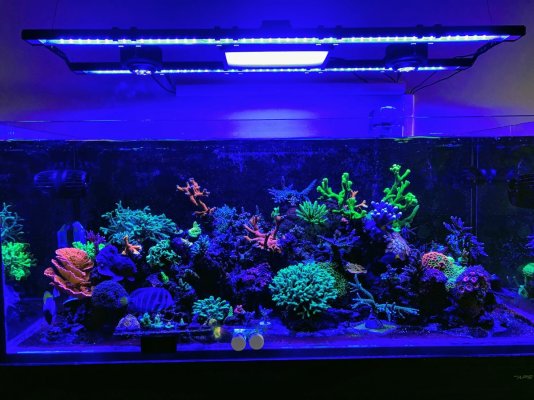Randy Holmes-Farley
Reef Chemist
View Badges
Staff member
Super Moderator
Excellence Award
Expert Contributor
Article Contributor
R2R Research
My Tank Thread
- Joined
- Sep 5, 2014
- Messages
- 67,509
- Reaction score
- 63,925
Reef Crystals says right on their packaging that they replenish Mag/Calcium and will also detoxify heavy metals if any get through your rodi.
The metal chelator is a curious additive that I do not think should be in a salt mix. It's one of the reasons I would not use Reef Crystals (the other being the vitamins in it).
Not only do metal chelators reduce the toxicity of toxic metals, they also reduced the bioavailability of needed metals.


















